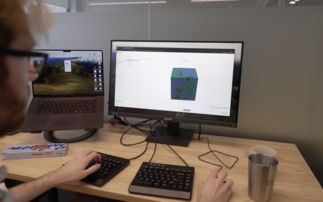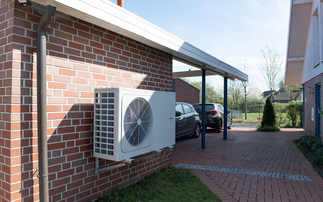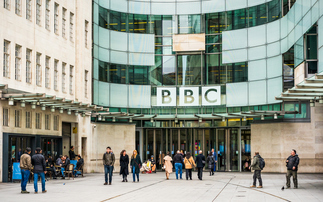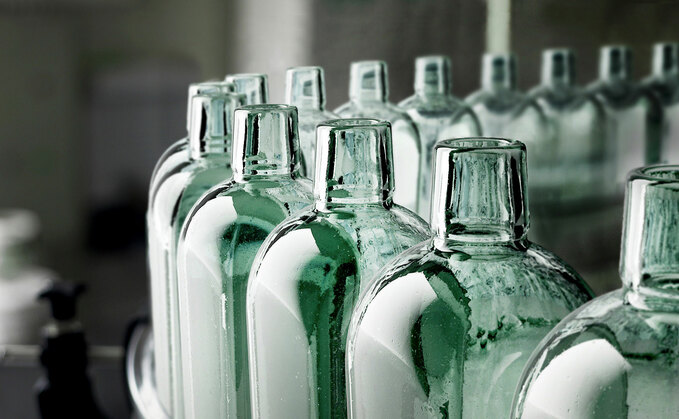
Industry Voice: Estal's Ana del Corral and Freddy Albertí explain how Wild Glass - made from 100 per cent post-consumer recycled glass - is driving a more sustainable future for glass packaging
Sustainable design and corporate responsibility
In a world increasingly committed to sustainability, innovation in production processes and design has become a cornerstone of the packaging industry. At Estal, a leading company in creating glass solutions for distilleries, wines, perfumery, home fragrances, oils, and other beverages, we've redefined the rules with Wild Glass – a range of bottles and jars made from 100 per cent post-consumer recycled (PCR) glass. This product not only sets new standards for sustainability but also reimagines the traditional aesthetics of glass packaging.
The transformative power of imperfections
In the production of Wild Glass bottles and jars, rather than discarding pieces that fail to meet conventional aesthetic standards, we embrace them as a distinctive feature. Wild Glass is a tribute to nature's imperfections. This approach celebrates authenticity and the unique character that natural flaws bring to each bottle while significantly reducing waste during the production process.
The organic texture and variable tones of recycled glass evoke craftsmanship, creating an emotional connection with today's consumers. The combination of sustainability and unique character appeals to a more conscientious audience, mindful of their consumption habits.
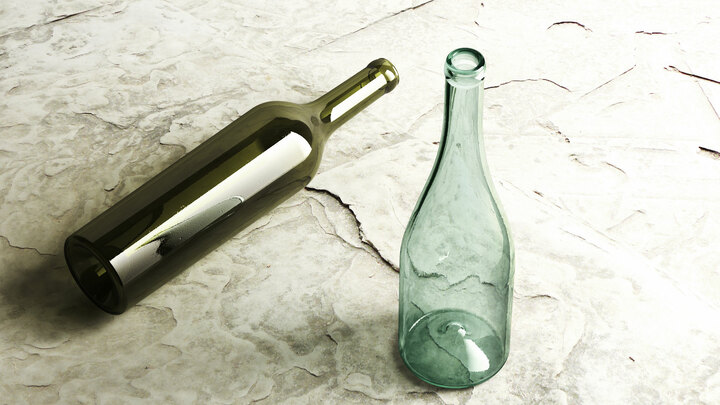
Circular economy in action
The production of Wild Glass aligns fully with the principles of the circular economy. By using 100 per cent PCR glass, we reduce the need for virgin raw materials and lower the carbon footprint associated with their extraction and processing. Each bottle represents a closed loop, where glass once used and discarded by consumers is reborn as new packaging, ready for a second life.
Estal, in collaboration with Inèdit, conducted a life-cycle analysis of Wild Glass, comparing the production of a bottle made from 100 per cent PCR glass to one made from Flint (traditional cosmetic-grade clear glass). The study revealed a reduction in environmental impact of between 26 per cent and 65 per cent. This is achieved through the substitution of newly extracted materials with recycled ones, a decrease in raw materials needed for production, lower emissions from transporting these materials, and less waste during the production process. Wild Glass embraces the aesthetic beauty of small imperfections and the tonal variations of recycled glass – elements traditionally seen as defects in conventional production.
The impact of Wild Glass
With Wild Glass, Estal's market influence is evident, from small artisanal brands that fully embrace Wild Glass's values to major global players increasingly committed to visible sustainability at every stage of their corporate chain. This is reflected in Wild Glass bottles being used for gins, rums, and other spirits, as well as gracing traditional sectors like wine and cognac. Estal's global reach extends across the United States, Latin America, Europe, and is steadily expanding into other regions worldwide. International brands such as Diageo and Pernod Ricard have chosen Wild Glass for some of their launches, alongside American and European brands like Wrekking Coast, Punta Mari Gin or distilleries & wineries such as Feddie Ocean Distillery, Slyrs Distillery, Distillerie du Viaduc, or Barbanera. Also, Neotempo, a winery located in Napa Valley, California, specialises in producing wines that blend nature, art, and science, for which we developed a custom project in Wild Dark Glass.
Its authenticity perfectly aligns with brands seeking to stand out in a competitive market. Its versatility also makes it ideal for other industries, including beauty, cosmetics, and home fragrances, where innovative design and environmental awareness are key to capturing the attention of new generations.
Internationally recognised innovation
Our commitment to Wild Glass has not gone unnoticed. This disruptive approach has been recognised on international platforms as a prime example of how innovation can drive significant change in the industry. Wild Glass is not just a technical and sustainable solution but also a paradigm for how brands can engage with new generations of consumers, such as Gen Z, a demographic deeply focused on their environmental footprint. These consumers are willing to scrutinize brand policies and choose products that genuinely align with their values.
In such a competitive market, meeting consumer expectations around sustainability and social responsibility is a pressing challenge for brands.
Through Estal's & Avery Dennison & Kurz Make a Mark project, various designers have chosen Wild Glass as their canvas, demonstrating how the pinnacle of packaging design embraces sustainability for projects of all types – including those in the luxury and premium sectors, which now undeniably prioritize sustainability.
A path to the future
In a context where environmental regulations are tightening and consumers demand greater transparency and commitment, Wild Glass stands as a visionary solution that meets today's needs while anticipating tomorrow's demands. At Estal, we prove that design, sustainability, and innovation can converge in a single product, providing brands with a powerful tool to stand out in a market increasingly driven by planetary responsibility.
With Wild Glass, we invite you to rethink the relationship between design and sustainability, reminding us that every choice matters and that Wild Glass can make a significant difference on the path to a more responsible future.
Ana del Corral is sales director at Estal.
Freddy Albertí is sustainability director at Estal.
This article is sponsored by Estal.



